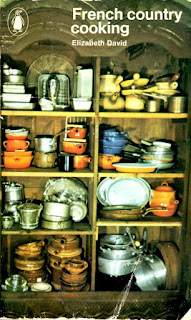Function and Field and Group
Michel Foucault, The Archaeology of Knowledge
Translated by A.M. Sheridan Smith
On the notion of function (vs structure):
This is not the place to answer the general question of the statement, but the problem can be clarified: the statement is not the same kind of unit as the sentence, the proposition, or the speech act; it cannot be referred therefore to the same criteria; but neither is it the same kind of unit as a material object, with it limits and independence. In its way of being unique (neither entirely linguistic, nor exclusively material), it is indispensable if we want to say whether or not there is a sentence, proposition, or speech act; and whether the sentence is correct (or acceptable, or interpretable), whether the proposition is legitimate and well constructed, whether the speech act fulfils its requirements, and was in fact carried out. We must not seek in the statement a unit that is either long or short, strongly and weakly structured, but one that is caught up, like the others, in a logical, grammatical, locutory nexus. It is not so much one element among others, a division that can be located at a certain level of analysis, as a function that operates vertically in relation to these various units, and which enables one to say of a series of signs whether or not they are present in it. The statement is not therefore a structure (that is, a group of relations between variable elements, thus authorizing a possibly infinite number of concrete models); it is a function of existence that properly belongs to signs and on the basis of which one may then decide, through analysis or intuition, whether or not they 'make sense', according to what rule they follow one another or are juxtaposed, of what they are the sign, and what sort of act is carried out by their formation (oral or written). One should not be surprised, then, if one has failed to find structural criteria of unity for the statement; this is because it is not in itself a unit, but a function that cuts across a domain of structures and possible unities, and which reveals them, with concrete contents, in time and space.Foucault on the archive
Between the language (langue) that defines the system of constructing possible sentences, and the corpus that passively collects the words that are spoken, the archive defines a particular level: that of a practice that causes a multiplicity of statements to emerge as so many regular events, as so many things to be dealt with and manipulated. It does not have the weight of tradition; and it does not constitute the library of all libraries, outside time and place; nor is it the welcoming oblivion that opens up to all new speech the operational field of its freedom; between tradition and oblivion, it reveals the rules of a practice that enables statements both to survive and to undergo regular modification. It is the general system of the formation and transformation of statements.In a nutshell: "The a priori of positivities is not only the system of temporal dispersion, it is itself a transformable group."
And so for day 2361
31.05.2013















